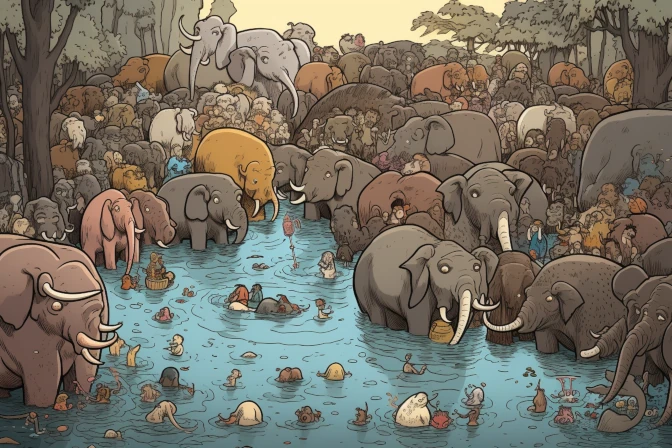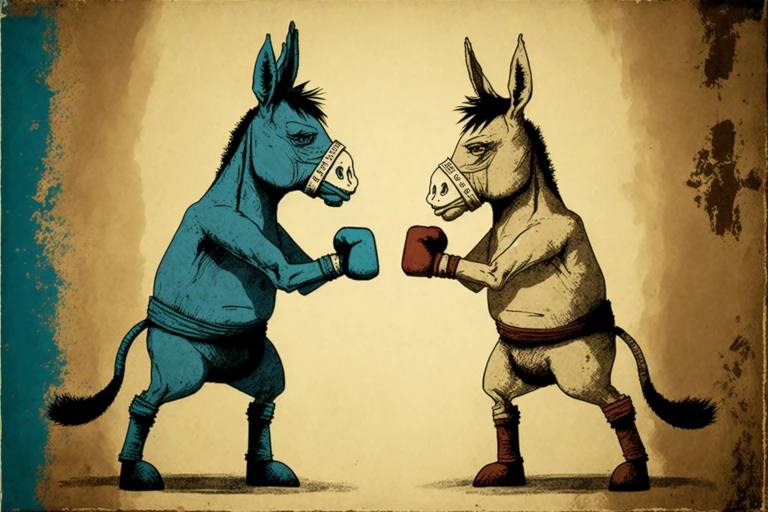What does it mean to be civilized? Beyond the observable systems and customs of civilization, what does civilization tell us about the human condition? Does civilization allow humans to transcend our animalistic nature or does it merely insulate some of us from the more brutal realities of the natural world? Cormac McCarthy has spent decades arguing the latter with stories depicting Ahab-like men driven to destruction in pursuit of the white whale of humanity. Child of God (1973), one of his early novels, adheres to this formula.
Child of God may distill McCarthy’s philosophy down to its most simple narrative. Unlike the winding journeys of Blood Meridian and The Border Trilogy, this early McCarthy story reads like the novelization of a Dateline episode. It follows a year in the life of Lester Ballard, a twenty-seven year old hillbilly who loses his home to foreclosure. Ballard, a man of unremarkable intelligence, has no discernible skills other than his talent with a rifle.
McCarthy wastes no time before outlining his thesis in the opening pages. He describes Lester as “[a] child of God much like yourself perhaps.” As the narrative continues no reader would want to identify with Ballard, but McCarthy argues that our shared humanity includes creatures such as him. Are there worlds of difference between the upstanding man who achieves great success and the degenerate who commits atrocities? McCarthy would have us believe the differences are subtle and largely a matter of circumstance.
The early chapters contain important details interspersed among red herrings. Because of this, the readers has no chance of distinguishing the relevant from the irrelevant on an initial read. Anonymous narrations chock full of colloquialisms recount anecdotes about Ballard but they do so as if we overhear them speaking at a bar. The stories of Lester quickly derail into something else altogether, making it difficult for the reader to remember that the purpose of the chapter are to relay certain tidbits about the main character.
In Blood Meridian, McCarthy details a youth caught up in a gang that commits atrocities. The details will shock any reader but the broad narrative is common enough. Rather than the influence of an accepting tribe, ostracization and loneliness drive Lester to unthinkable acts. In many ways, this is more disturbing. Left to his own devises, evil possesses Lester Ballard and he does evil things. His exile merely frees him from any social pressure to satisfy his natural urges within the confines of the rule of law and conventional morality.
But it’s hard to read Child of God as an indictment on man or society. Reading it as a psychological profile of the exiled proves equally fruitless. Instead, McCarthy attempts to present an assessment of nature. McCarthy named the sheriff who torments Ballard in the course of his duties Fate Turner, an on-the-nose title for a man who can so easily alter the lives of those around him. Turner is not a bad man. His actions that ruin Ballard amount to no more than his duty. Enforcing the auction of Ballard’s foreclosed home. Investigating crimes Ballard committed or was accused of. The rule of law and the economics of man are incompatible with Ballard’s ability to survive outside of captivity in prison or a mental institution. In this way, some people are like aggressive dogs—only able to survive with the safeguard of domestication but unable to be trusted outside of a cage.
I once read an overtly Christian interpretation of Blood Meridian that insisted that McCarthy argues for the reality of evil. To me, this misses the mark. McCarthy consistently seems to present evil as a human construct, a way of characterizing things about the world that cause us pain or contradict the order we have attempted to impose on the world. Evil is merely an unpleasant aspect of nature. In this sense, it’s fair to call Ballard evil, but only when we keep this definition in mind. Ballard’s desires are simple enough—sustenance, security, companionship, and pleasure. As he’s pushed further away from any ability to satisfy these desires by conventional means, he finds increasingly transgressive ways to fulfill them. He loses his home and moves into an abandoned cabin. He loses the cabin and moves into a cave. McCarthy calls attention to the fact that Ballard pursues the same things any other human does, but when faced with depleted options he takes what he can get. In this way, Ballard is just like the rest of humanity and “a child of God much like yourself perhaps.”





